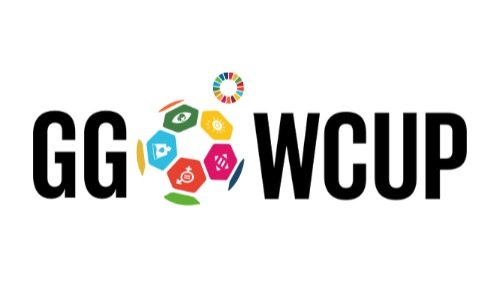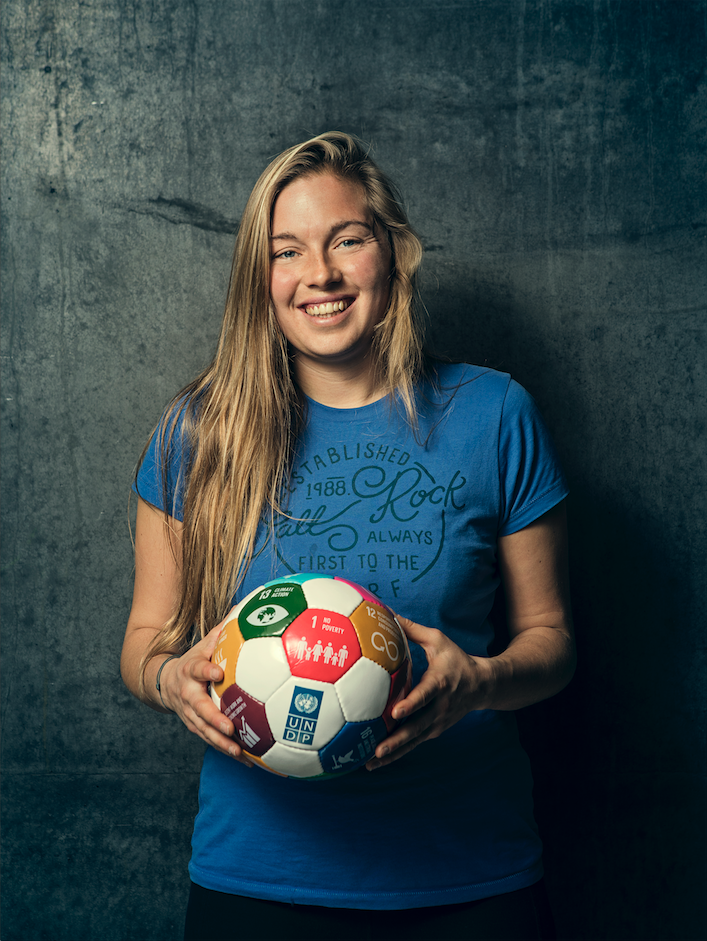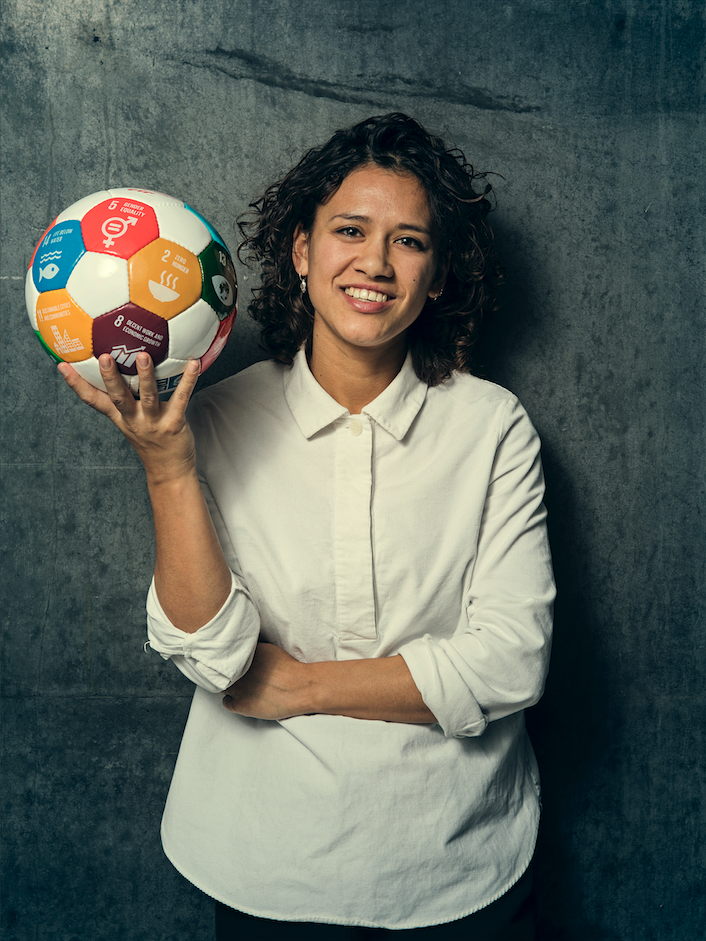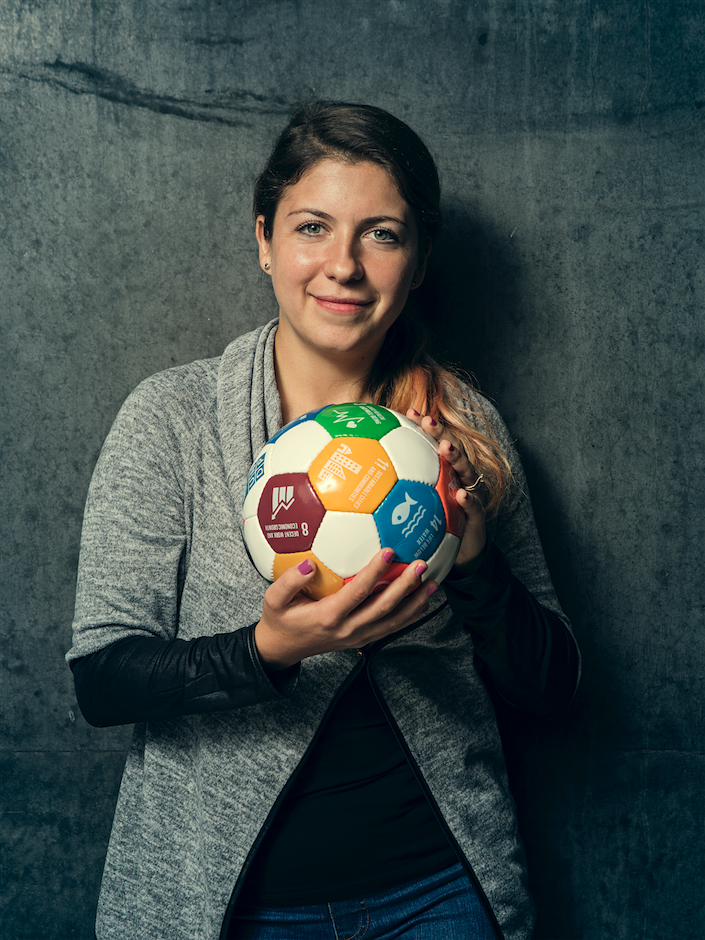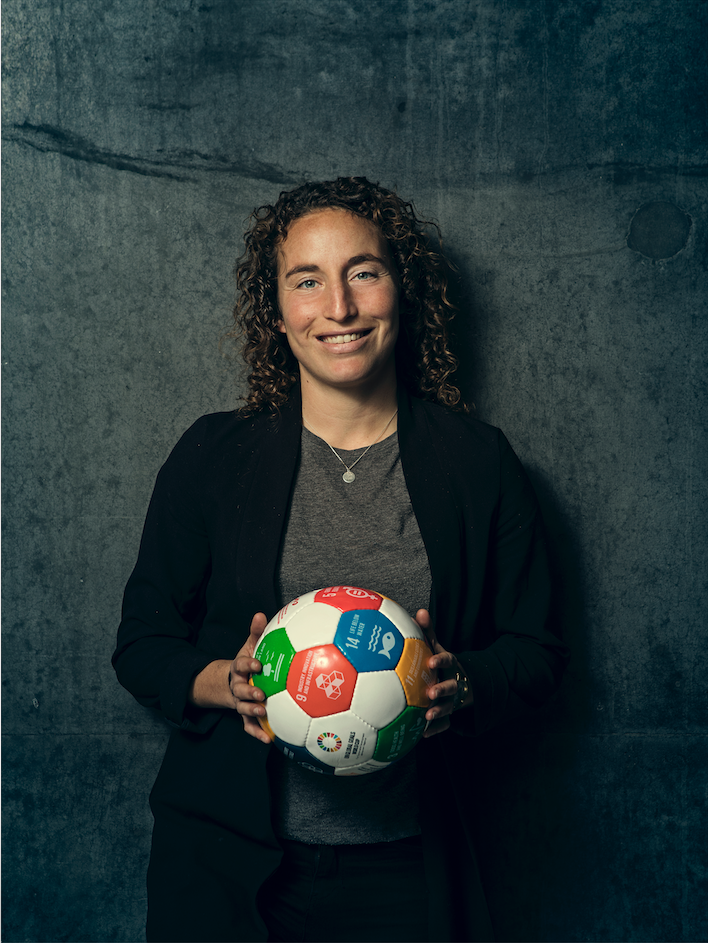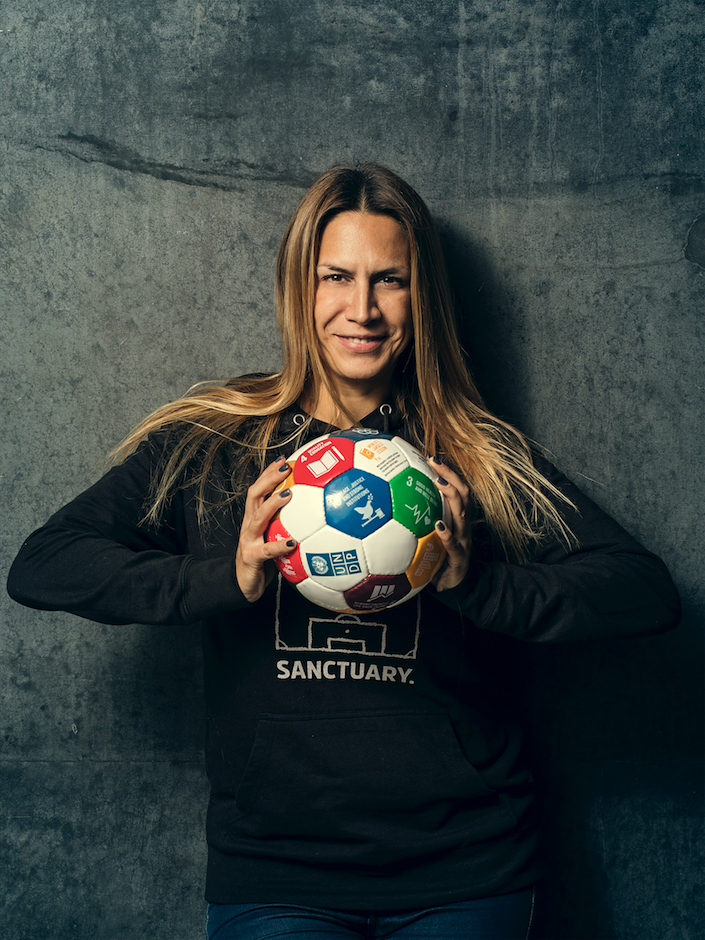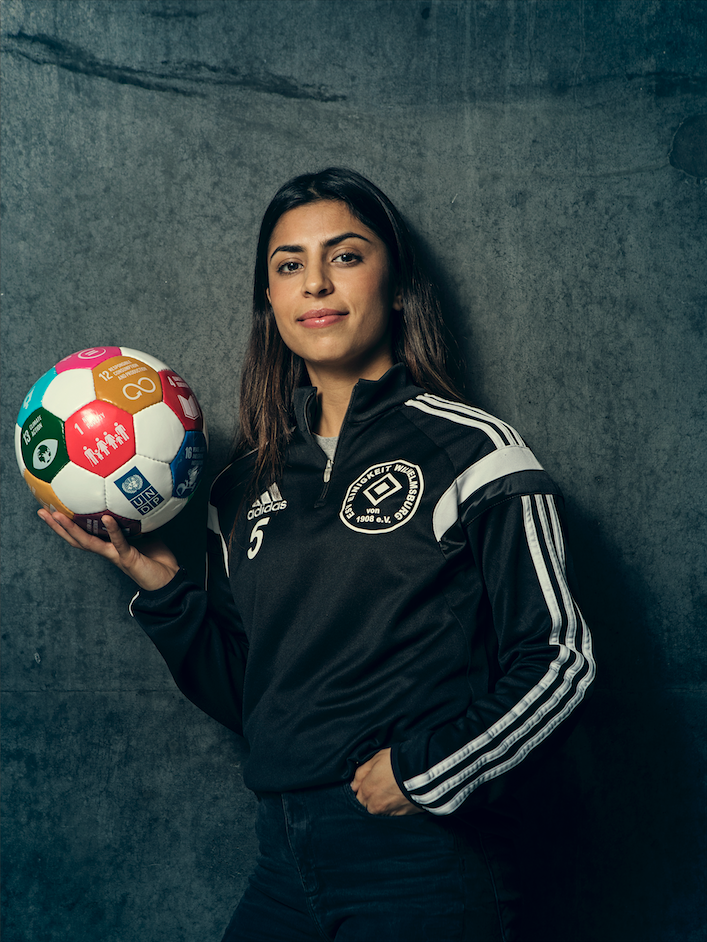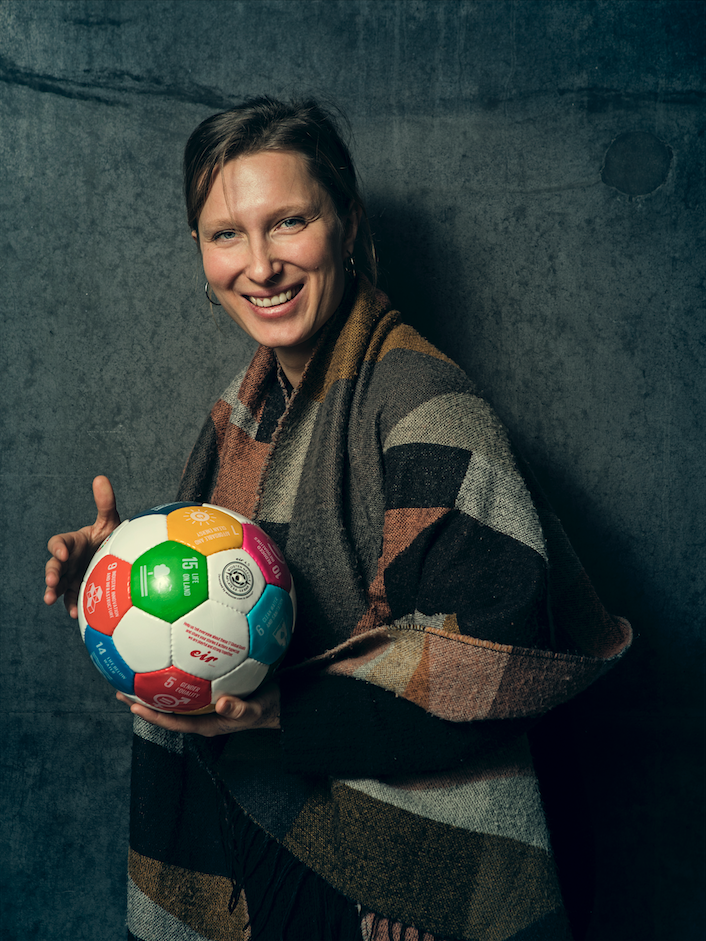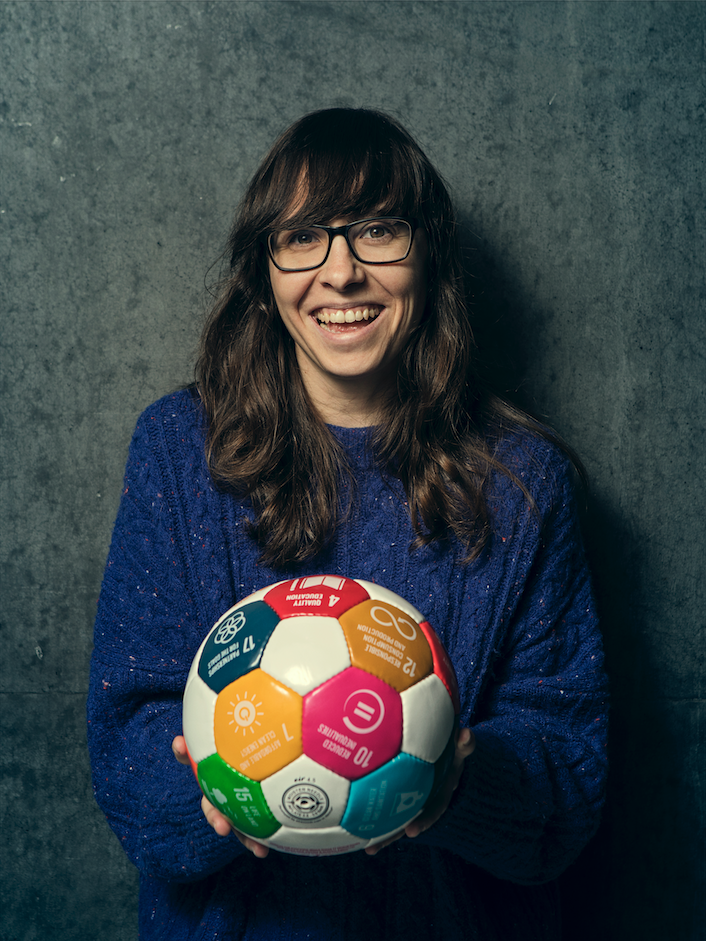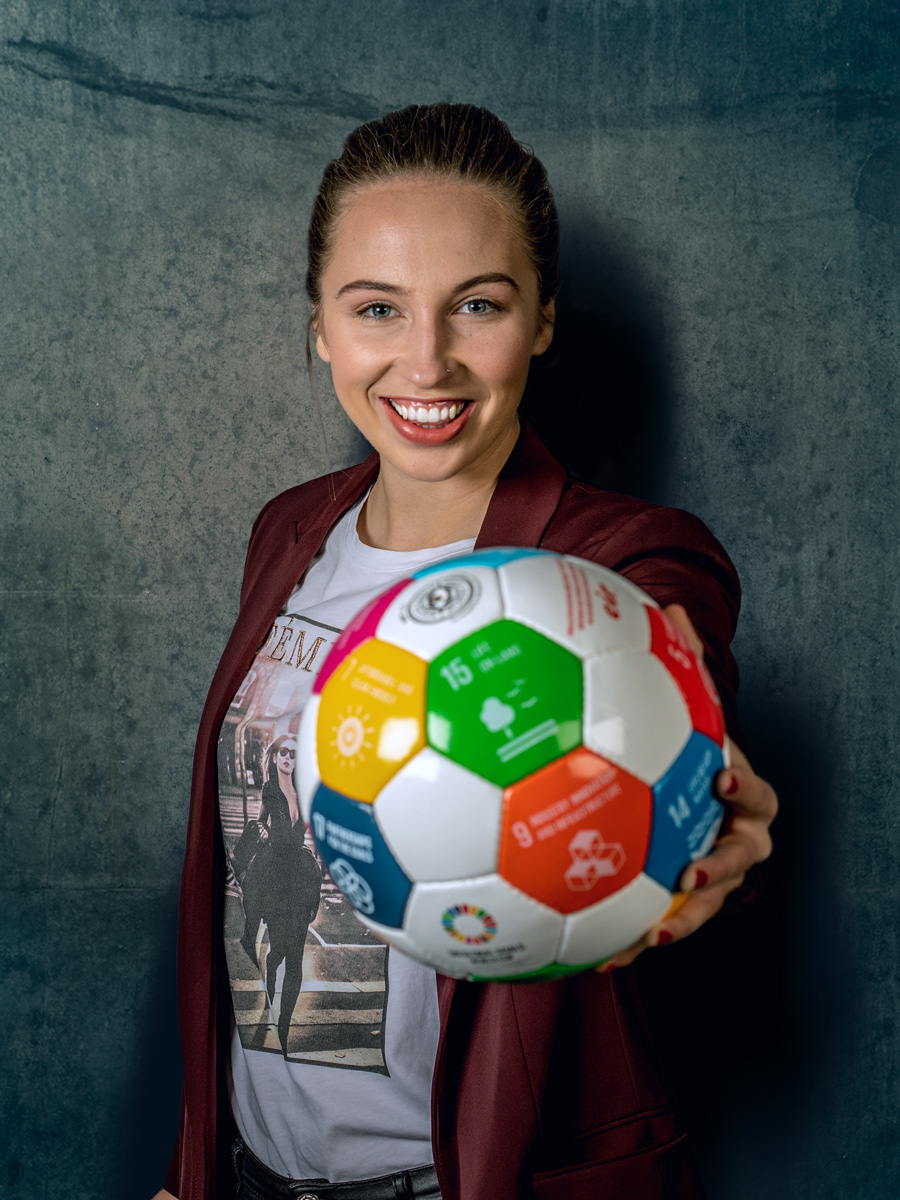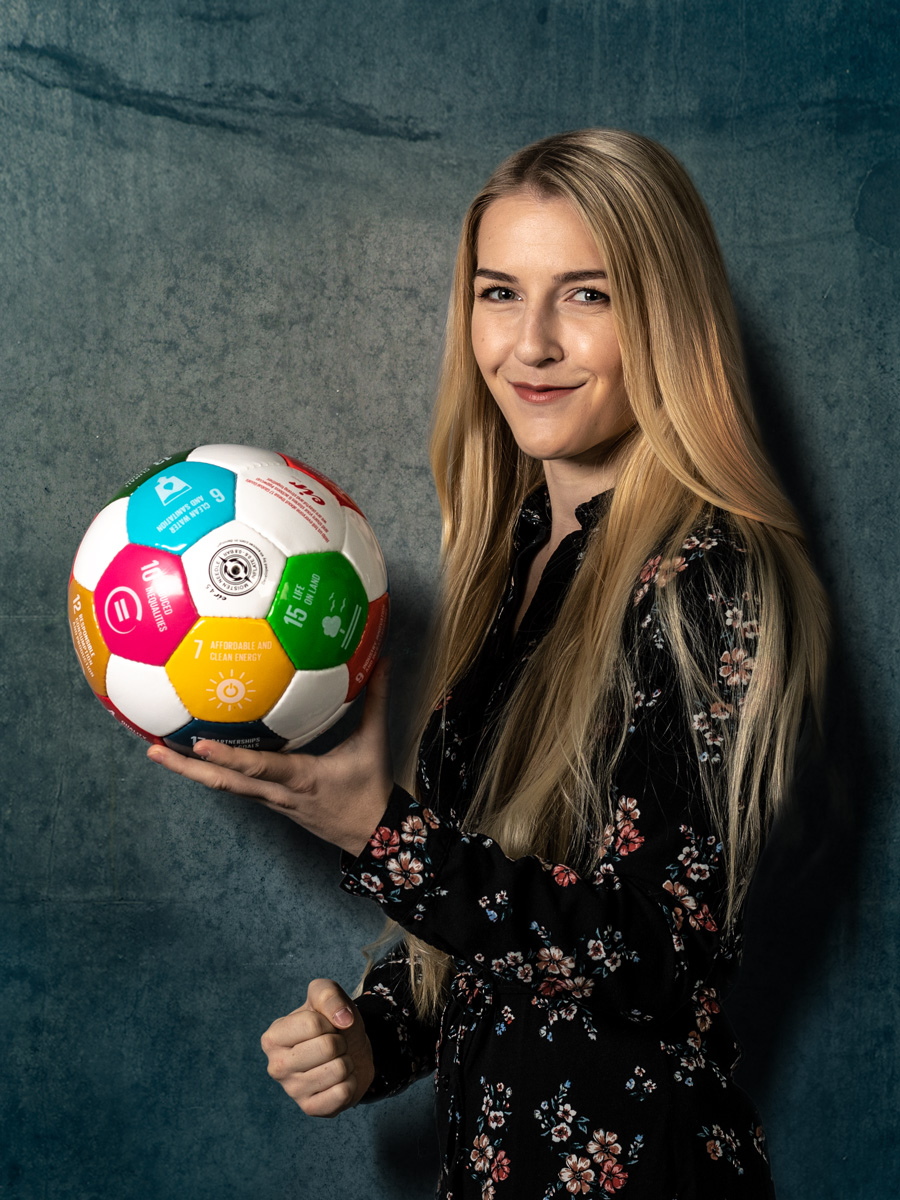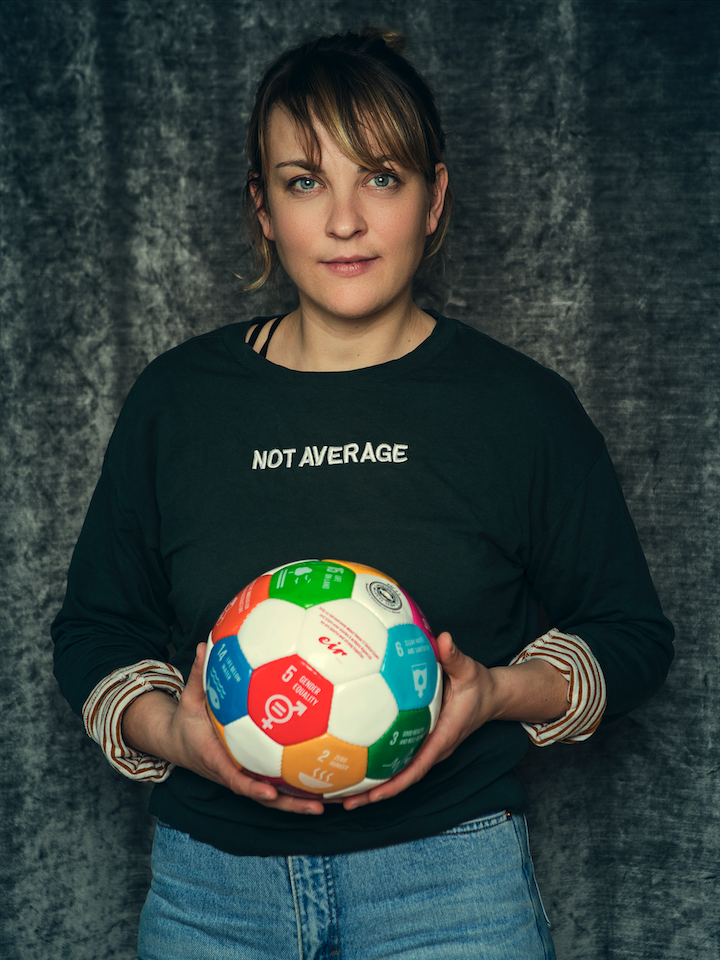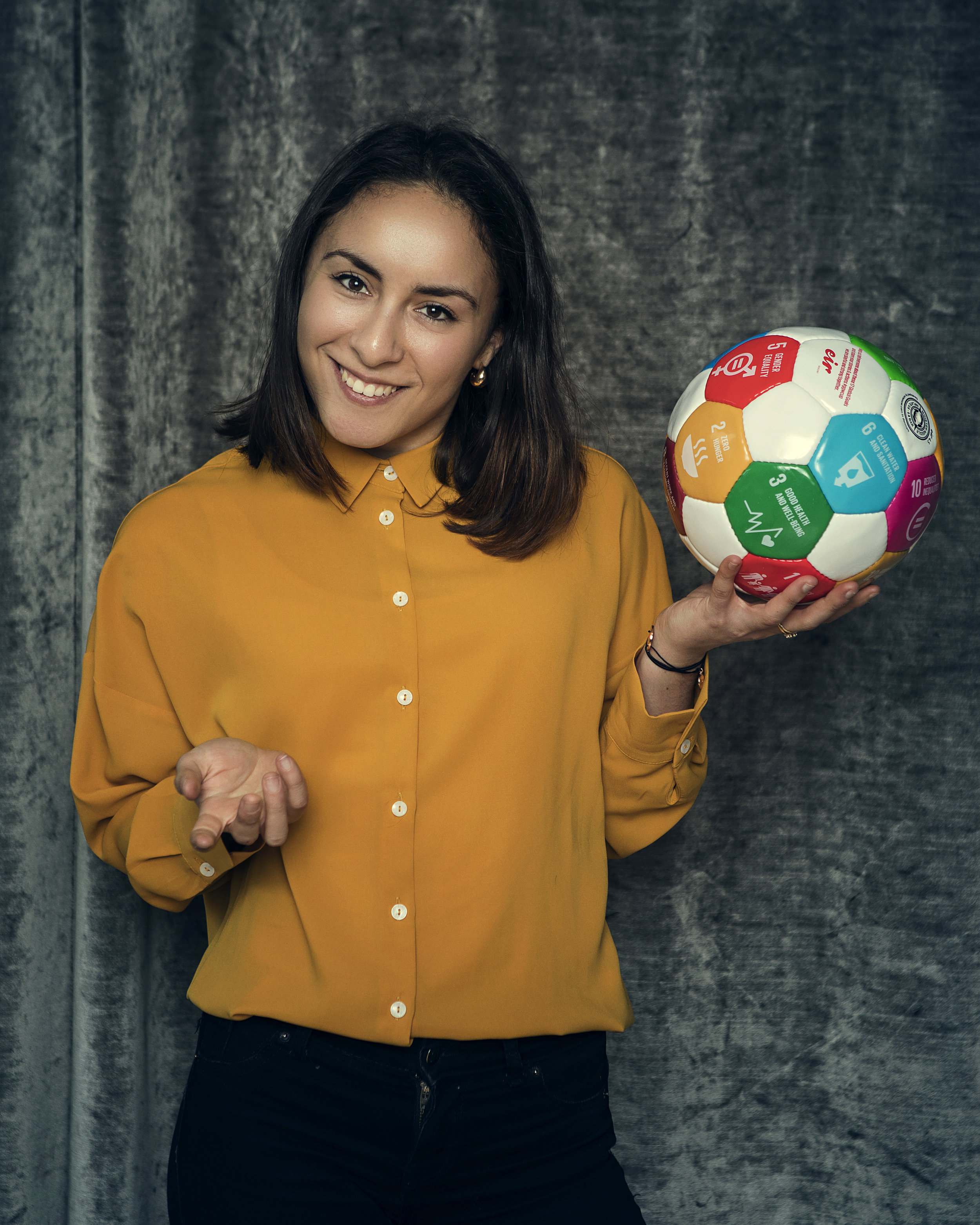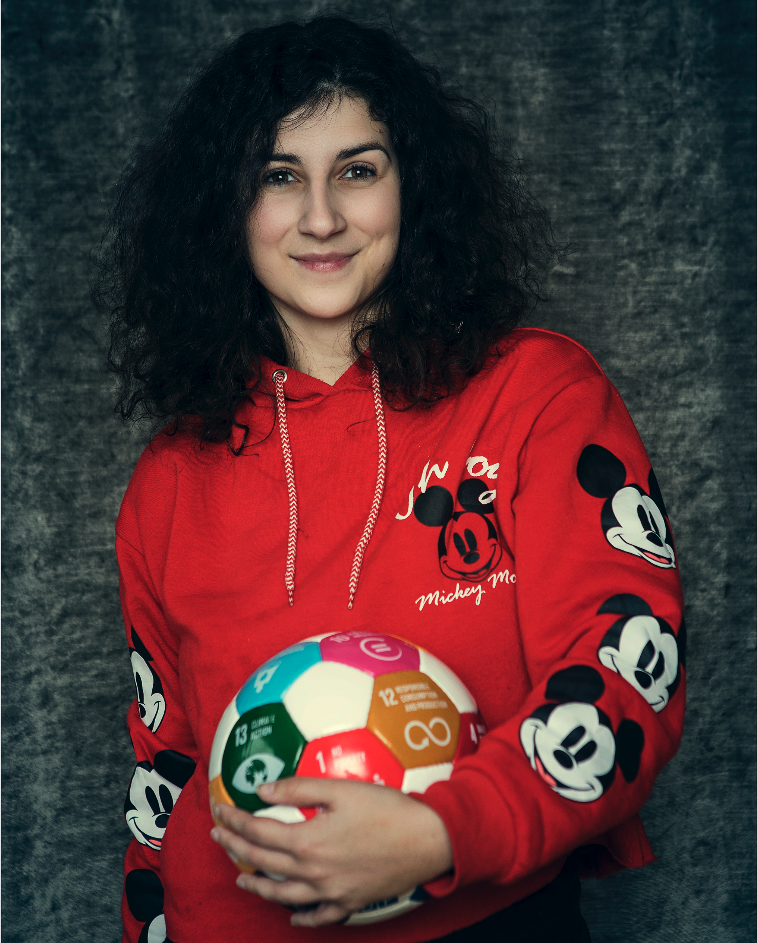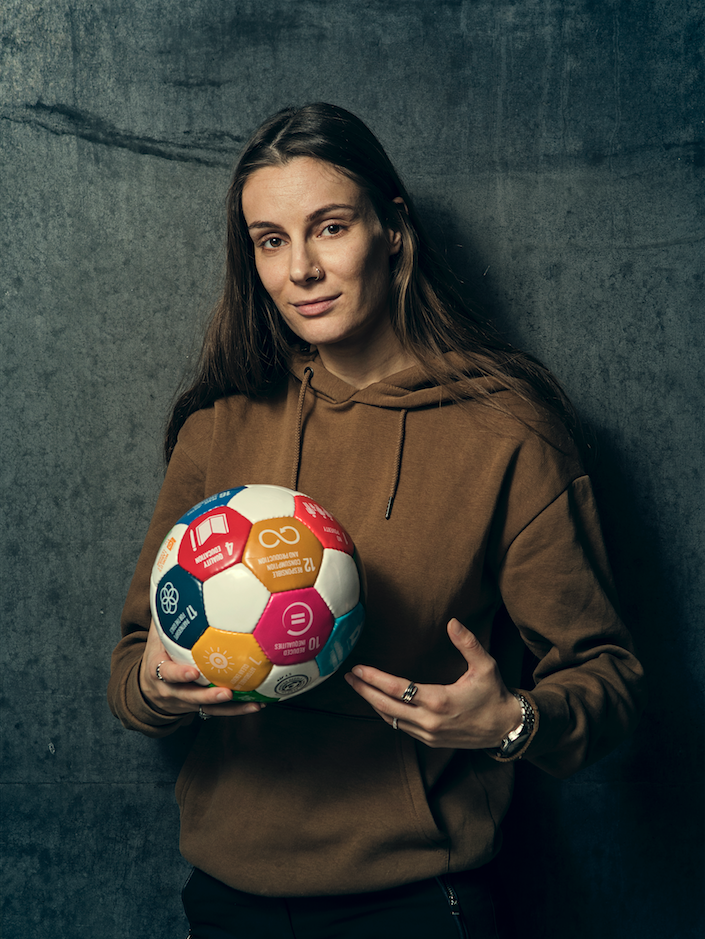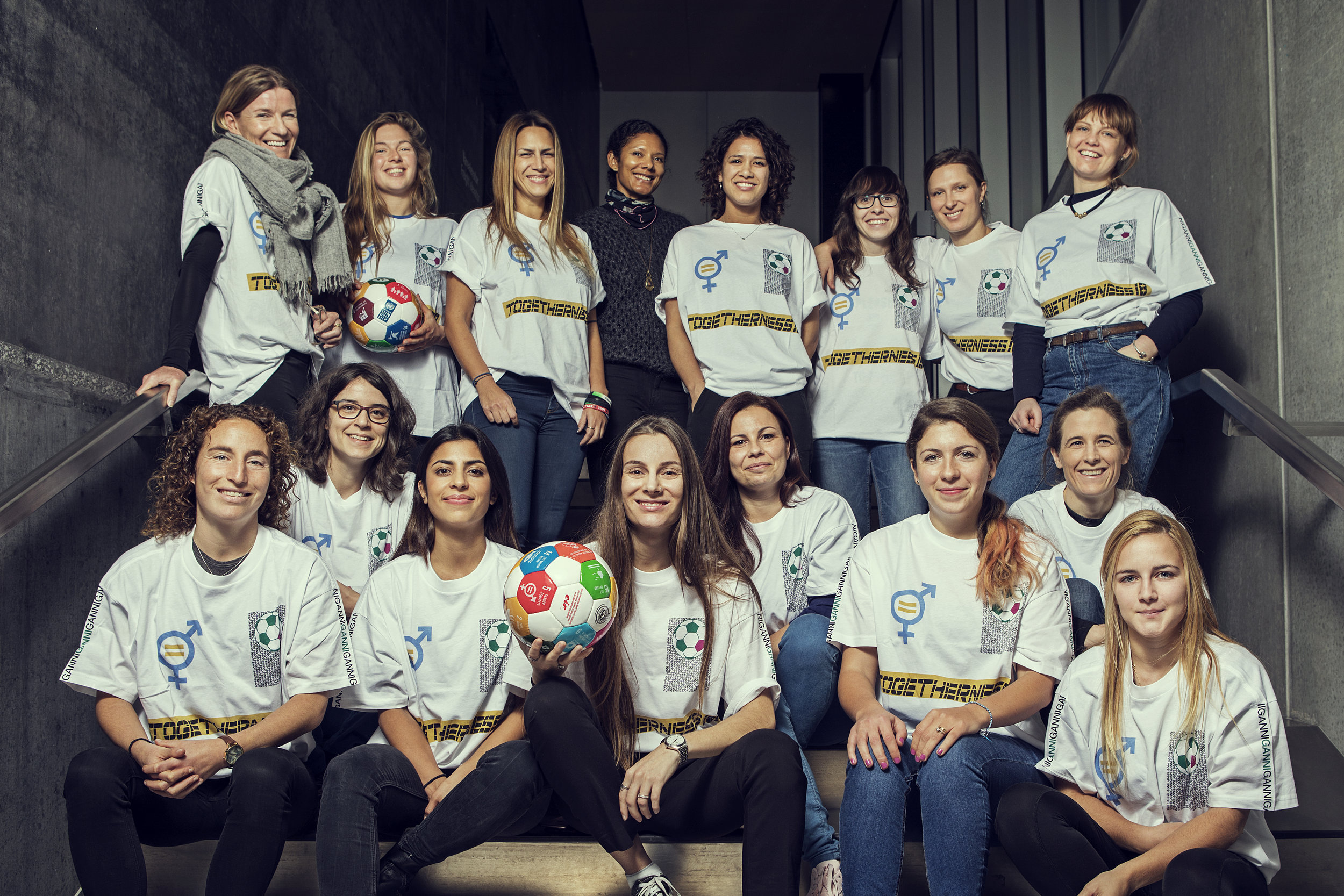EIR Coach Program Background
A one year program activating the groundbreaking potential of sports and play with purpose.
At the grassroots levels and amateur levels there are very few opportunities for women to educate themselves. They do not meet the qualifications of the governing body’s courses and they do not have the opportunity to work towards those qualifications. If license criteria is set too high then that will automatically take away numerous competent leaders from coaching positions.
Through leading GGWCUP tournaments around the world, we have come into contact with so many inspiring and committed female coaches. It has been one of our organization’s goals to work with and learn from these sport and community leaders.
Contributing to the importance of this goal, research has found a major difference in the amount of physical activity practiced by men compared to that of women, across all socioeconomic dimensions. We regard this finding as a challenge as well as an opportunity to test out a new prototype that positions and equips women coaches as the main actors in engaging women in physical activity.
We, as women working in this sector, need to come up with and test out new approaches to get more women active. We believe that strong and knowledgeable female coaches are one key component to the solution. However, we also believe that there is a need to change the way that we approach football as a tool. We propose starting with the global goals in combination with football as an entry point to reach out and activate women who are not even on the sidelines, but very far from the pitch.
The program addresses the pervasive issue of female underrepresentation in sport and the need for radical action to change this, recognizing that current measures are insufficient and lack originality.
Here a few of our results:
92 % agree that their actions created positive impact for the players.
82 % of the Coaches agree that they have become a stronger leader.
80 % agree that this project have improved their coaching skills.
73 % agree they have been able to test out new ideas and strategies for engaging women with fewer opportunities in sport.
84 % agree they felt celebrated as active role models.
72 % have built a stronger local community.
80 % agreed they have built a stronger international network.
69 % agree that the GGWCUP was an opportunity to connect with other people who are invested in making the world a better place.
Read the full report (short version).
Our first step was putting out a call to organizations and female coaches living and working in the EU. The valuable learnings is now integrated in the final EIR Coach Program that will be released in 2021/2022.
The first thirteen coaches (2018-2019)
The call for female coached stated the mission of the project. Thirteen coaches was selected and accepted our Global Goals Challenge: Form a team of women from their home country and participate in the GGWCUP in Copenhagen on May 14, 2019.
The scope of the project was to create and test out the coach ambassador role while simultaneously testing out the Global Goals team methodology with a diverse group of hard to reach women. Each coach had a reach within her own local context. When teams were formed, the reach expanded as each of the 6-8 players (or more in some cases) had her own reach within the community.
For some coaches, it was important to partner with additional organizations or partners to bring in more resources or support for the team. It was also often the case that during the team’s actions towards their selected global goal, their reach was extended through partnerships with local schools, associations or media outlets.
An example of a team's reach could be explained by coach ambassador Natalie from Spain, who partnered with a social organization working to combat violence against women, MUM to find her players. Through their dedicated actions towards SDG 15, they designed a project which was implemented in the local schools.
Copenhagen, Denmark was the main site for the in person components of the project and the site of the GGWCUP EU. This fact is important to note because it led to the involvement of a dynamic group of partners for both coaching clinics and an extended group of partners for the main event, all of whom used the SDG framework.
During the two coach clinics, team presentations and online meetings, we collected our learnings and released a publication to inspire everyone worldwide who is working with women in sports.
The coaches and players helped us better understand what it takes to engage more women in sport, and make them feel like they belong. They all had to overcome social or cultural barriers to participate in sports and became new sports role models.
The first first Coach Program was co-founded by the Erasmus+ Programme of the European Union.
The coaches came from: Ireland, Czech Republic, Austria, Spain, Sweden, Malta, Germany, Romania, Britain, Greece and Denmark.
In addition to representing the 12 different European countries, the group of 75 players represented many others, such as Afghanistan, Syria, Iraq, Somalia, Congo, Eritrea, Morocco, Algeria, Egypt, Turkey, Tajikistan, Italy, Wales, Colombia, Kosovo, France and Iran.
Team Hestia FC lead by EIR Coach Katerina Salta, Greece.
